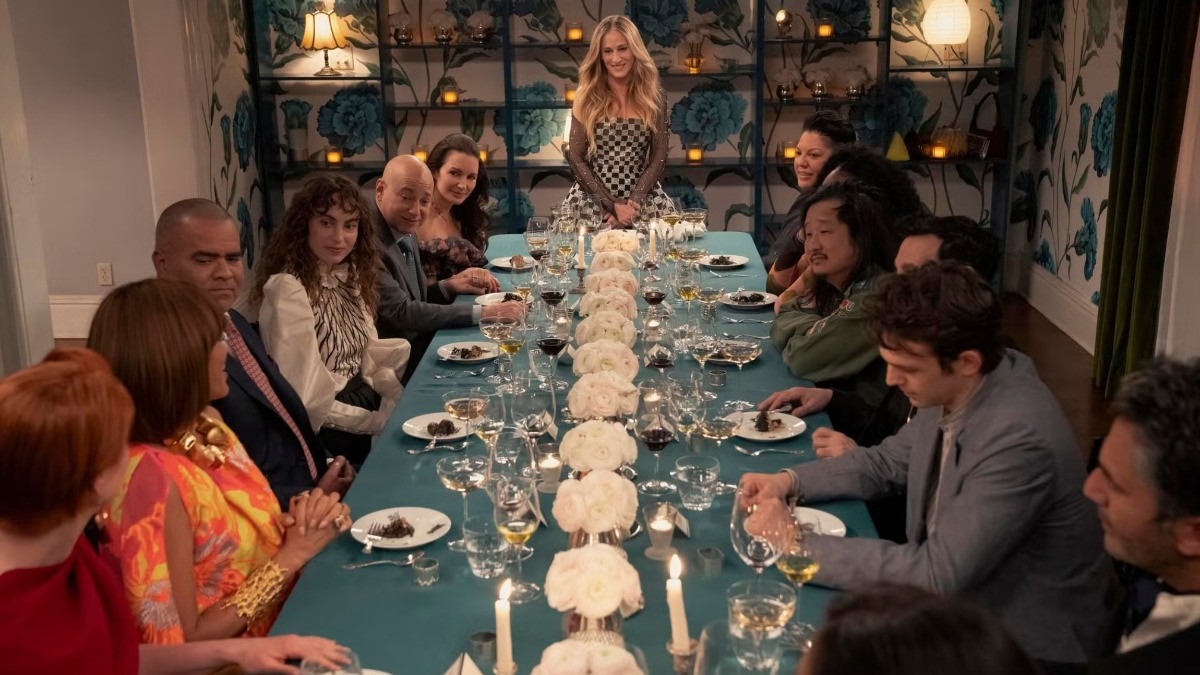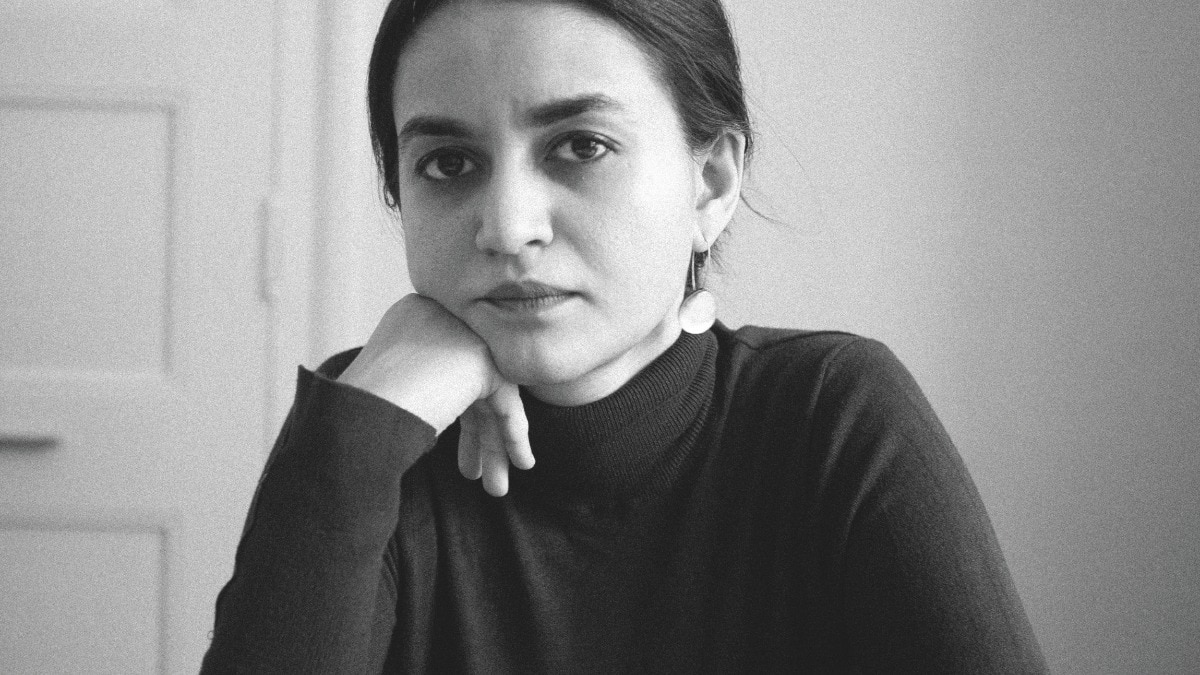A James Beard Award-winning chef, a striking passion for cooking, and a cause to centre it all
‘Mind blasting hospitality’ and ‘mastery in servitude’ are at the heart of everything Meherwan Irani does.


There was something about the air that felt, for the lack of a better word, moving, as I opened the rickety gate of KG Subramanyan’s residence in Baroda. Perhaps, it was knowing that I was walking into an interview for my first cover story. Perhaps, it was knowing that I was meeting one of the best modern artists of India. Or perhaps, it was just being out of the polluted Delhi air. Whatever it was, it followed me as I crept my way through the canopy of, what I want to believe were, sitafal (custard apple) trees, dotted with savar (an Asian tropical tree) and karanj (Indian beech); and bushes of lush green somethings that I shall never know the names of. It stayed with me as I entered the small porch to his sitting room, where the master sat at work on his latest canvas, and spoke to him about his life and work; and I left with it, clutching a small painting that he so graciously gifted to me.
I will not bore you with the details of the conversation. This isn’t about that visit, which is available for you to read online anyway, but the point I am trying to make is—I went on to interview SH Raza, Krishen Khanna, and Ram Kumar for the same story, but nothing moved me as much as my few hours with KG Subramanyan. His simplicity, humility, and most importantly, the child-like joy of pursuing his passion for painting was unlike anyone else I’d met, and it is something I have held onto as a life lesson to the oxymoronic pursuit of joyous success.
Why am I going on this rant? Well, because it brings me to the person I write about today, and coming face to face, after seven years, with the same feeling of being moved with renewed passion and drive—this time as I spoke with Chef Meherwan Irani.

What struck me the most about Irani was his unusual relationship with food. We have endlessly read stories about chefs who grew up cooking in their home kitchens, going on to follow their passion in culinary schools, and onto training under big names. But not for Irani. In fact, he does not hesitate to tell you that you wouldn’t see him in the kitchen until he was well into his 20s. “Can you imagine a boy in an Indian kitchen! The blasphemy of it in those days.”
“But I did realise that the food education started early on, without me realising it,” he reiterates many times in our conversation.
Irani grew up in Ahmednagar, Maharashtra, where his mother ran a B&B for tourists visiting the famous ashram in the neighbourhood. It is there, as his mother revolutionised Indian cooking for the American guests, that Irani, unknowingly, began his foodification. Imagine a bowl of hot spaghetti and meatballs, only its spiced Parsi kebabs with a nice hit of ginger, coriander, and cumin. Or pork chops and steak seasoned with Indian spices. Even her version of sloppy joe’s with keema. “She spent six months in Italy learning to make pizza and it is some of the best pizzas I’ve eaten. But what I remember most is how mum lightened Indian cooking and made it fresher with the use of fresh ingredients. You could taste each ingredient.”

It was with this comfort of home food that Irani moved to America, where he realised, for the first time, that his mother had unknowingly created a foodie. The lack of food that tasted of home, while discovering new southern flavours that he enjoyed, led him to start cooking for himself, and soon for his Indian friends overseas.
“I realised the importance of ingredients. My friends and I started scrounging for masalas, and my mother soon started sending her ‘aunty’ recipes (what our mothers refer to as andaaz anusaar (according to taste) and ‘you didn’t know that, that’s basic’)—first through mail and then on email. She even flew down for a month and I learned from watching her cook and even went for spice hunts with her to recreate the Indian flavours with what we could find in the states,” he recalls.
The same followed him through his years in corporate jobs and through marriage. What changed was his level of interest, which only grew over time, and led him to become more technique-focused, starting with watching a lot of TV shows—think Julia Child, Jacques Pépin, and others. “I even started going around the Bay Area to soak in the food being cooked.” And with the focus on Asian food there, Irani managed to get more diversity under his foodification belt.

“But through all of this, opening a restaurant was not even a remote thought,” Irani says. Not until he chanced upon Vik’s Chaat House, an Indian grocery store, which on Saturdays sold chaat, samosa, ragda patties, bhel puri, and other Indian snacks. It was there, when the place soon started piling up with Americans at the back of the grocery store and the dustbin started spilling with empty throwaway plates, that it hit Irani. “I realised that this was the kind of food that Amercians could get excited about, and it could be done better, served better.”
As the idea stewed in his head, Irani continued to refine his cooking skills, continuing to learn from his mother and mother-in-law, who is a professional pastry chef. And that is how Irani made space for the understanding of various cuisines under his belt. He even became the designated cook for all dinners and meet-ups.
But it wasn’t until many more years that Irani decided to open his first restaurant, Chai Pani. “I think Molly (Irani’s wife) realised that while I had been working all these years, I hadn’t found my passion, something I could be deeply invested in. And then one day she said that I must quit and find that for myself. I immediately knew it had to be a restaurant serving the street foods of India.”
As I heard Irani describe the makings of a bhel puri—a blend of ingredients from all around the country, from the sev to the bhel, bhujiya (all, crispy Indian snacks), the coriander chutney and the tamarind paste—it struck me how little I had thought about what’s on my plate beyond taste and cooking methods, and how the makings of a chef go well beyond the techniques of cooking. The makings that were there in Irani right from the beginning.
And that is how Chai Pani was born.

Today, the business has expanded to two branches of Chai Pani; two of his second venture, Botiwalla; and his latest Nani’s Piri Piri Chicken. Not to forget, his spice business that he was almost coerced into by the sheer number of calls he got asking for their curated spices.
But street food and its flavours remain intrinsic to Irani’s cooking lexicon. “Street food in India doesn’t belong to one community. It is a coming together of regional produce and flavours. An amalgamation—India on a plate. And it is so much fun! It has the ability of making people nostalgic and happy, just the mix I love!”

And it is the same sense of one worldliness that also reflects in the team that Irani has put together and the projects that they take up beyond the kitchen.
“Mastery in servitude is our motto. I knew right from the get go that we had to be in service of something, and we found that in each other, ourselves, our customers, and the community at large.”
When it comes to the last tenet, for the team it starts with ‘Give back Wednesdays’, where all the proceeds for the day go to a cause chosen by different team members. And the same spirit is reflected in the larger charities that they support, like Dharavi Diary—a community centre located in the heart of one of the world’s largest slums in Mumbai, where over one million people live in one square mile and in homes made of tarps and sheet metal, without running water or plumbing. In this centre, children are provided with tutors, access to books and computers, and a vibrant community space that promotes learning. And the Chai Pani Restaurant Group has pledged to raise $40,000 to support the Dharavi Diary students this year (which they have exceeded already!).

Of course, Irani receiving the James Beard Award for Chai Pani in 2022 has helped with the vision. “It has been a megaphone for what we do, including Dharavi Diary.” And yet, Irani says he hasn’t come around to being comfortable with people calling him chef. “Though I am learning to accept the title,” he laughs.
Which brings me back to the simplicity, humility, and sheer honesty in ambition and passion on the road to success that I was speaking about at the beginning. I will keep coming back to this interview every time I need a reminder of what it means to follow through with your passion with steadfast ambition and drive, and finding happiness in it all.










